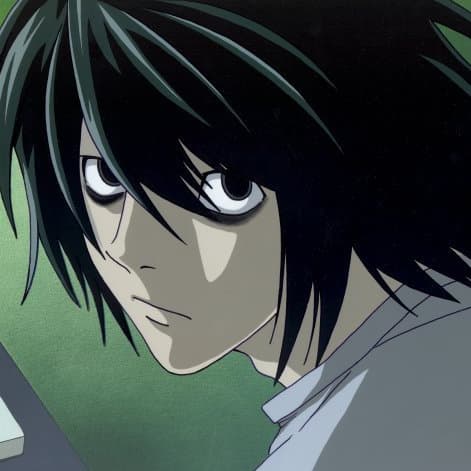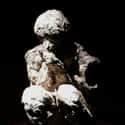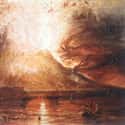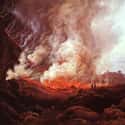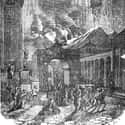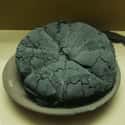-
(#11) Some People May Have Suffocated To Death
Though experts agree most residents of Pompeii passed instantly due to the blistering pyroclastic flow, there is evidence that some victims succumbed via suffocation. The toxic blend of gas and fine ash in the air was likely noxious enough to kill a person. In 2018, archaeologists unearthed the skeleton of a man they believe died by asphyxiation.
The eruption would have been especially excruciating for people with asthma. Pliny the Elder, one of the most famous victims of the disaster, may have had asthma, which could have contributed to his death.
-
(#9) People Bunkered Down In Their Homes And Listened For Hours As Stones Pelted Their Roofs
As the eruption began and pelted Pompeii with rocks and ash, many people sought protection from the storm by rushing inside buildings rather than risk their lives trying to escape. Those who decided to stay in what they thought were safe spaces probably heard stones slamming into the roof for hours on end.
About 6 inches' worth of stones accumulated on the buildings and in the streets of Pompeii every hour. By the time the stony, ashy rain ended, several feet of debris covered the city.
-
(#7) Breathing In Volcanic Gas Was Painful
As Vesuvius erupted, it discharged noxious gas into the air, making it difficult for people to breathe. In the first, relatively weak pyroclastic flow, the gas was cooler, but breathing it in was still incredibly painful.
And this didn't only affect Pompeii. People around the rest of the Bay of Naples struggled to breathe the toxic air. Even in Misenum - a city about a dozen miles from Pompeii - the air made people choke and cough.
-
(#4) Falling Rocks Killed Many People Who Tried To Escape
Though the earth trembled for days before the eruption, the situation turned deadly on August 24. By evening, the volcano was spewing rocks, some of which measured roughly 3 inches wide. Escaping the storm of stones was risky, but many tried.
Not all were successful: Many Pompeians who took the gamble lost their lives from blows to the head.
-
(#12) People Grabbed Their Belongings As They Tried To Flee
The ruins of Pompeii look like a world frozen in time. They feature intriguing artifacts like carbonized bread that was left in an oven, as well as artwork that provides insight into the luxurious lifestyle of Pompeii's elite. But people fleeing the eruption didn't simply leave objects behind - they took them along, perhaps believing they might survive and be able to use them again.
One victim in Herculaneum carried medical instruments. Another brought amulets for protection. These objects are reminders of the humanity of Vesuvius's victims.
-
(#3) The Air Likely Smelled Awful
Like many ancient cities, Pompeii stunk even before that fateful August day in 79 CE. But as the volcano was erupting, the air quality worsened due to the thick, toxic gas. Pliny the Younger, witness to the natural disaster, noted how the smell of sulfur in the air intensified before the volcano erupted.
The volcano likely spewed hydrogen sulfide, heralded by a distinct scent reminiscent of "rotten eggs." Between the sulfur and smoke, the smells compelled some Pompeians to repurpose their tunics by tying them around their faces.
New Random Displays Display All By Ranking
About This Tool
"Nothing in the world can last forever." This is an inscription on a fresco in Pompeii. The demise of Pompeii, a paradise on earth, seems to confirm this statement. On August 24, 79 AD, Mount Vesuvius erupted and ash buried the entire ancient city of Pompeii. There were still thousands of remains under the ruins of Pompeii. They were wrapped in volcanic ash when they were discovered, and still maintained the form when they died.
Researchers have long believed that the cause of death of Pompeii residents was suffocation caused by volcanic ash, and high-temperature magma erupted. The random tool explained 15 details about what it was like to die at Pompeii.
Our data comes from Ranker, If you want to participate in the ranking of items displayed on this page, please click here.










